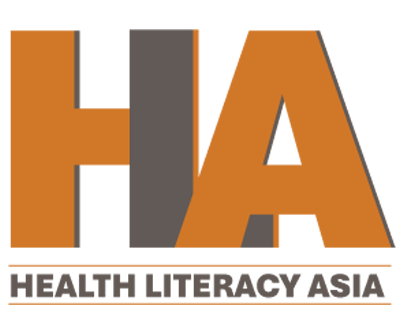The aftermath of the COVID-19 pandemic has shifted the focus from crisis response to proactive preparedness for emerging threats. However, emerging infectious disease (EID) threats continue to pose public health risks.
Throughout the pandemic, WHO has supported Indonesia to conduct Intra-Action Review (IAR) that identified practical areas for immediate remediation and sustained improvement of the ongoing response. Eight reviews were done in three years, with key recommendations ranged from improving real-time surveillance, hospital preparedness, to community-based empowerment. These recommendations are translated into action, among others, through the evaluation of Field Epidemiology Training Program (FETP) and development of multisectoral contingency planning, refresher trainings on influenza-like illness (ILI) and severe acute respiratory infections (SARI) sentinel surveillance, and EID risk mapping.
Established in 1982 as non-degree programme to train field epidemiologists, FETP is now offered as master’s degree programme by five public universities in Jakarta, Yogyakarta, Surabaya, Makassar and Denpasar. To improve its quality, the Ministry of Health (MoH) and WHO conducted a Quality Continuous Improvement evaluation to identify achievements, gaps, and opportunities for improvement. The evaluators recommended enhancing coordination and resources within FETP network, convening meetings between relevant ministries, and conducting periodic curriculum reviews to ensure the quality and consistency of the programme. These recommendations have informed FETP Indonesia’s updated strategic plan, which aims to deliver high-quality training to epidemiologists who will play a pivotal role in safeguarding public health.
WHO also collaborated with the MoH to develop multisectoral contingency plans for public health emergencies in four districts: Central Bengkulu, Central Lombok, Cilegon, and Minahasa. Workshops to develop these plans involved diverse stakeholders in crafting district-specific contingency plans based on WHO guidelines and in line with the national disaster framework. The plans provide clear guidance on joint response actions, roles, responsibilities, and coordination among the diverse stakeholders tasked with responding to emerging public health threats. Along with the new four districts, now Indonesia has 12 districts that received WHO support to develop contingency plans. These districts are in the provinces of Banten, East Java, South Sumatra, Bengkulu, North Sulawesi and West Nusa Tenggara.
“The contingency plan should be reviewed and tested periodically, ensuring its effectiveness and relevance over time. Additionally, it will be translated into a response plan, further facilitating coordinated actions, roles, responsibilities, and communication among the diverse stakeholders in response to emerging public health threats,” said Dr I Made Yosi, Epidemiologist of Health Quarantine Working Group of MoH, during a meeting to develop contingency plan.

ILI sentinel surveillance refresher training in Bandung, West Java. Credit: WHO/Endang Wulandari
In addition, WHO and MoH conducted training for 15 SARI sentinel hospitals and 26 ILI sentinel primary healthcare centers. The sentinels are crucial for spotting new infectious diseases early because they monitor symptoms similar to those of flu and severe respiratory infections, providing an early warning system for potential outbreaks before they spread widely. In the trainings, participants refreshed their knowledge about case detection, operational definition of SARI case, sample collection, packaging, and shipment, recording and reporting, and data analysis. After the trainings, WHO and MoH reviewed performance of SARI sentinel surveillance, identified gaps, and discussed necessary follow up actions to improve their performance.
Moreover, WHO supported emerging infectious diseases workshops for 100 healthcare workers from 34 provinces, emphasizing strategy for EID preparedness, detection, syndromic surveillance and risk mapping. WHO assisted MoH as well to develop risk mapping tool for COVID-19 and other emerging threats, including Nipah virus, mpox, meningitis meningococcal Avian influenza, Zika, and legionellosis.
Following the declaration of the end of the Public Health Emergency of International Concern for COVID-19, WHO supported Indonesia to conduct the After Action Review (AAR) to distil lessons learned and fortify its response mechanisms. The AAR on 26-27 September 2023 engaged 170 participants from diverse sectors, including ministries, agencies, associations, and academia. The participants reviewed emergency coordination, collaborative surveillance, safe and scalable care, access to countermeasures, and community protection during the pandemics. In the review, WHO introduced the novel Preparedness, Resilience, and Emerging Threats (PRET) approach, which recognizes that the same systems, capacities, knowledge, and tools can be leveraged and applied for groups of pathogens based on their mode of transmission.

Developing recommended priority actions during the After-Action Review (AAR) meeting. Credit: WHO/Endang Wulandari
The AAR recommended Indonesia to implement measures for transitioning from COVID-19 and implement policies on prevention and control of zoonosis and EIDs. Other recommendations include updating contingency plans based on lessons learned from COVID-19, improving surveillance using multisource epidemiology and virology surveillance including continue to maintain ILI and SARI sentinel surveillance to monitor influenza and COVID-19,strengthening risk assessment and risk mapping, improving hospital preparedness through periodic review, and ensuring a sustainable deployment plan for countermeasures like vaccines and medical equipment. These recommendations are important to inform Indonesia’s national and sub-national plans to ensure better preparedness and response to future public health threats.
These initiatives are vital for Indonesia’s future resilience. By implementing these proactive measures, Indonesia aims to build a robust foundation for preparedness and response to emerging threats, safeguarding the health and well-being of its population.
_____________________________________________________________________
This activity is generously supported by the European Union, and the US Government through USAID.
Source: Written by Dr Endang Widuri Wulandari, National Professional Officer, WHO Indonesia.
https://www.who.int/indonesia/news/detail/04-03-2024-building-back-better–strengthening-indonesia-s-preparedness-and-resilience-to-emerging-threats




